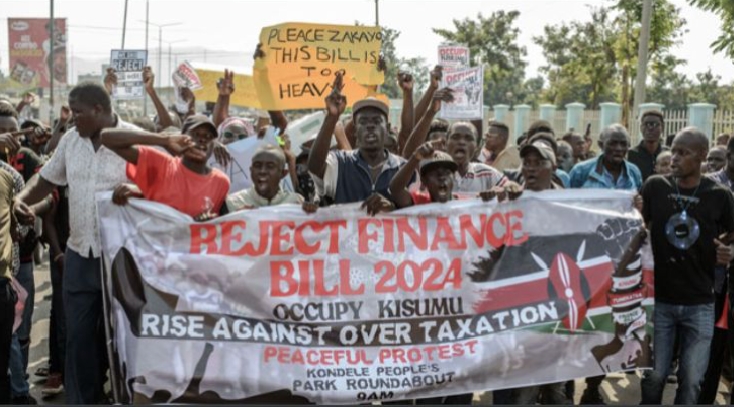In June 2024, Kenya witnessed a remarkable shift in its political landscape as Gen Z transformed from perceived political bystanders to tech-savvy activists. The catalyst was the controversial Finance Bill 2024, which sparked a digital uprising that quickly evolved into a nationwide movement, challenging the government’s policies and redefining protest methods in Kenya.
The movement began on TikTok, where young Kenyans expressed their frustrations with the proposed tax measures. What started as simple video posts soon spread across various social media platforms, igniting a digital wildfire of discontent. Gen Z demonstrated their technological prowess by employing an array of innovative tactics, including AI-generated protest songs, custom GPT models explaining the bill’s intricacies, and trending hashtags like #OccupyParliament and #RejectFinanceBill2024.
A pivotal moment came when activists crowdsourced a list of MPs’ phone numbers, inundating legislators with messages. One MP reportedly received over 30,000 texts from constituents, highlighting the movement’s reach and organization.
As online activism transitioned to street protests, Nairobi’s Central Business District saw an unprecedented gathering. Unlike traditional demonstrations, these protesters were armed with smartphones, live-streaming capabilities, and a keen understanding of social media’s power. The decentralized nature of the movement posed a challenge for authorities, who struggled to identify clear leadership targets.
However, the peaceful protests were met with forceful opposition. Police employed tear gas and water cannons, some infused with colored dye to mark protesters for later arrest. Despite these tactics, the demonstrators remained resolute, with some even continuing their activism from police custody through social media posts.
The government’s initial response was to drop several controversial tax proposals, but protesters demanded the complete rejection of the Finance Bill. Tragically, the situation escalated, resulting in two fatalities. Rex Kanyike Masai, 29, and Evans Kiratu, 21, became symbols of the movement’s cost, sparking outrage and new hashtags like #RIPRex and #JusticeForRex.
In the face of adversity, Kenyan solidarity shone through. Local businesses and religious institutions, such as the Jamia Mosque, opened their doors to shelter protesters. Medical professionals, led by Dr. Austin Omondi and Dr. Salim Ishmael, volunteered their services to treat injured demonstrators.
Social media played a dual role, serving as a platform for organizing support and holding accountable those perceived as unsupportive. Misinformation also spread, highlighting the challenges of rapid information dissemination in the digital age.
The online community rallied to support the victims’ families, raising over 2.2 million Kenyan shillings by Sunday morning. Pressure mounted for the release of detained protesters, with some success reported.
This tech-driven protest marks a significant shift in Kenya’s political engagement. It demonstrates that young Kenyans can effectively mobilize around issues affecting their daily lives, leveraging digital tools alongside traditional protest methods. The movement has sent a clear message to current and future leaders about the power of a digitally connected and politically engaged youth.
As Kenya moves forward, the events of June 2024 will likely be remembered as a turning point in the country’s political activism. The fusion of digital savvy and street protest has created a new model of civic engagement, one that may shape the future of political discourse and action in Kenya and beyond.
 We just launched our WhatsApp channel. Want to get the latest news from the Tech in Africa?
We just launched our WhatsApp channel. Want to get the latest news from the Tech in Africa?



